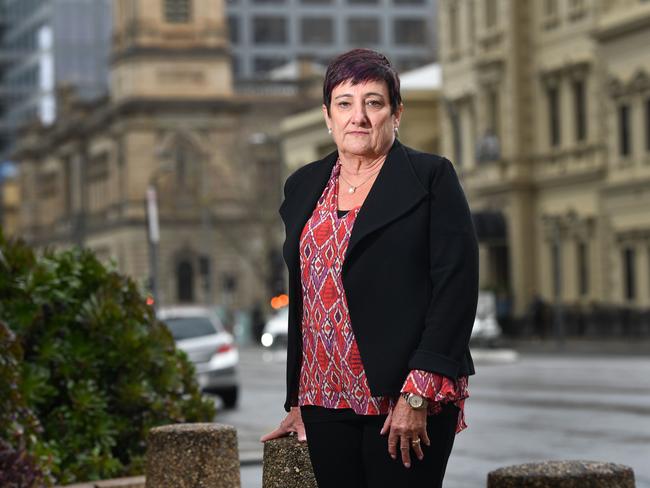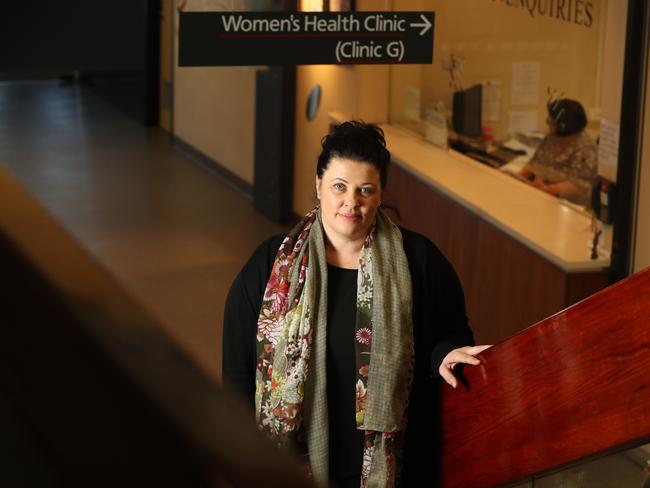What our babies really see and hear, and how they remember it
They don’t talk and they’re asleep most of the time but babies are paying more attention to the world around them than we might realise. And we could be having long-term effects before we know it.
A mother is playing with her baby, making encouraging noises and facial expressions as the little girl babbles and points to the world around her.
While they can’t have a proper conversation, the pair are interacting and building their relationship.
Then, the mother turns away. When she faces her daughter again her features are blank.
The little girl’s reaction is almost instant. A look of confusion falls across her tiny face, before she resumes pointing and babbling in an effort to get a reaction.
Expectation turns to frustration as she reaches for her mother, wriggling and screeching before dissolving into tears in a matter of minutes.
Eventually mum sparks to life again and reaches out to reassure her girl. The betrayal is almost immediately forgiven and no lasting damage is done.
This was just an experiment, first conducted by University of Massachusetts Boston researchers in 1975 and replicated many times since.
But it shows the profound impact parents’ behaviour can have on their babies’ mental state.
If regularly left alone in their cot or ignored by a parent engrossed in their mobile phone or passed out on drugs, research tells us babies will act out like this — or eventually become resigned to the fact no one will come to meet their needs.
“Babies very quickly learn … they adapt to that,” explains South Australian child and adolescent psychiatrist Dr Prue McEvoy.
“They might demonstrate it by trying to get their needs met by crying. They can be unsettled. They’re harder to soothe.
“But some babies have learned that they’re not going to get their needs met so they’ll just stop trying.
“They start to think ‘Well, the world isn’t a safe place, it’s actually a pretty scary place, and I don’t have a lot of control’. It’s very distressing.”
Even more worrying — although surprising for many — is that despite their infancy, these early experiences stay with babies as they grow.
“There’s a lot of evidence now that babies remember, it’s just different to how we (adults) remember,” Dr McEvoy says.
“It is a memory based on sounds, sensation, touch.
“A baby’s brain is being constantly sculpted by experience. With chronic neglect, in serious situations, their brain just isn’t the same size as another child’s brain.”

Sadly, Dr McEvoy is all too familiar with households where babies’ mental health is being put at risk by poor parenting, through her work in the Child Protection Department.
She was appointed in February as the department’s first lead psychiatric director and is believed to be the only psychiatrist in the country based in a government child-protection agency.
Dr McEvoy is leading work upskilling staff to help struggling parents, and to intervene early to prevent long-term consequences for children.
“Often mothers we see in child protection (work) have their own trauma histories,” she says.
“If a mother is distracted, or she’s using drugs, or she’s being bashed up, or terrified her husband is going to bash her up, that (relationship building with her baby) doesn’t happen.
“Babies really need that (relationship) from birth, even prior to birth. So, antenatally if there’s domestic violence, if Mum is very anxious or significantly depressed … then that also affects the baby.”
But the risk is not just in dysfunctional or disadvantaged households.
Dr McEvoy says every parent should be aware of how their behaviour can mould their baby’s mental health — for better or worse.
The key is ensuring there is a two-way interaction between parent and child. Understanding and meeting a baby’s needs — for food, a clean nappy, warmth or sleep — engaging in play and providing safety are all cornerstones of helping an infant develop a secure sense of themselves and their place in the world.
No parent will “get it right all the time”, Dr McEvoy stresses, but the key is being willing to persist.
“You are tired and you do lose it at times but it’s important that you can repair that,” she says.
“There are lots of other reasons for irritability in a baby but what most families have is a support network around them so that those difficulties get ironed out.
“It’s not going to go smoothly 24 hours a day, seven days a week, but your role is to try and help (the baby) make sense of the world.”
Like the baby in the experiment, infants will forget lapses if the general message from mum or dad is consistent. It’s when their environment is constantly neglectful, unpredictable or dangerous that long-term effects can set in.
“It really changes the child’s trajectory,” Dr McEvoy says.
“In toddlers … they might become defiant or oppositional or start doing naughty things when actually they just don’t know how to regulate themselves.”
This can be misdiagnosed as attention deficit hyperactivity disorder.
“The other common diagnosis is autism spectrum disorder,” Dr McEvoy says.
“Because they feel so out of control they might actually try to take control by doing some of those behaviours that might be seen as autistic.”
Speech and motor-skill development is also often delayed.
“What we see, unfortunately, is that kids who come into (state) care late really struggle,” Dr McEvoy says.
“That’s why the high-risk infant strategy is really a strong priority at the moment. It is such a critical time.”
Here Dr McEvoy is talking about efforts within the Child Protection Department, and other government agencies, to focus on intervening early with families who are neglecting infants or grappling with issues that get in the way of building that crucial bond.
New data released by the department, covering the past seven years, shows authorities had to remove 335 newborns from unsafe parents within the first month of their lives.
At the same time, reports to the Child Abuse Report Line about pregnant women and unborn babies have been steadily rising.
Child Protection Minister Rachel Sanderson says most of these families are dealing with domestic violence, substance abuse or mental illness — or “frequently a combination” of these.
“It is tragic that there is a need for child protection (workers) to remove babies from their families, sometimes at birth,” she says.
“However, this is only done with the safety and wellbeing of the child as the utmost priority.”
Acting Opposition child protection spokeswoman Susan Close agrees it is “the most difficult job in the world to make that judgment” to remove an infant from a mother.
“We are dealing, often, with very complex human beings and professionals doing their best to make the right judgment,” Dr Close says.
“The more evidence we can gain the more we’ll be able to get that early intervention right so that children don’t have to be removed.”
The State Government has tasked its relatively new Early Intervention Research Directorate with building that body of evidence.
It is based in the Human Services Department which also has responsibility for initiatives such as the Child and Family Support System, which prioritises young mothers, infants and young people who have experienced abuse or neglect who may become parents, and Safer Family Programs, which work with parents to improve their skills.
Last week, Ms Sanderson visited staff at Flinders Medical Centre’s Child Protection Service unit “to hear their suggestions on how we can continue to improve outcomes for families and their unborn children”.
The department has hired high-risk infant workers at FMC and Lyell McEwin Hospital and is recruiting for the role at the Women’s and Children’s Hospital.
Inger Richardson recently took up the position at FMC.
The 45-year-old mother has been a social worker in the department for the past three years and previously worked in child care. She says her new role involves “working very closely with families” to identify risks to their children and “supporting mothers during pregnancy to help them provide appropriate care to their child once born”.

Workers who specialise in infants at risk have also been deployed to work with non-government welfare agencies in Adelaide’s northern, southern and western suburbs.
Next month, experts including Professor Mary Dozier, from the US, will visit Adelaide for the Australian Association for Infant Mental Health Conference. Nationally, the Federal Government is also recognising the issue, pledging last week to develop a new children’s mental-health strategy.
Advocacy organisation Emerging Minds welcomes the announcement, noting only one in six Australian children with a mental health condition can access the help they need.
Director Brad Morgan says Australia’s health system is “not designed to respond to emerging issues in childhood and when help is sought, assistance is often delayed, insufficient or directed at children with more serious issues”.
Mr Morgan echoes Dr McEvoy’s emphasis on the impact of a parent’s “emotional and physical health” on their relationship with their child.
“That can flow on to the child’s sense of self and wellbeing,” he says.
“Currently, one in four children has a parent living with mental illness. Many families also experience bereavement, serious illness, financial adversity, family and domestic violence and other vulnerabilities which all can impact on a child’s emotional wellbeing.”
Experts agree that health and childcare providers could use more training to recognise the early signs of mental distress in children, to enable them to act as protective factors for children at risk.
In cases where authorities have to remove children from harmful homes, Dr McEvoy says work can still be done to rebuild relationships with birth parents and avert lifelong effects on kids.
“But you can throw every service you want at a family … the parent has to be able to start to take some responsibility,” she says.
Foster carers or extended relatives who take children in also need more support to recognise why a child might be acting out.
“Historically, foster carers often didn’t even know the history of the child, so how could they be responding in an attuned way,” Dr McEvoy says.
“A child might go from a very chaotic environment into a very safe environment and the foster carer might say ‘Whenever the door bangs they just start screaming’.
“They’re getting a lot more of that information now (about the child).”
For any parent or carer, the main message is that threats to a baby’s mental health don’t have to result in lasting damage.
Recognising the signs of distress, re-engaging and seeking and accepting help can all make a big difference, Dr McEvoy explains.
“We’ll see families where it has been really tough … the baby might have been premature or sick, or there’s lots of stress or anxiety, and there will be some developmental impacts of that — but it’s not permanent,” she says.
“That’s why we say this is where we need to be investing. The sooner we can intervene with that … the better it is for the child because that trajectory is changed.”

